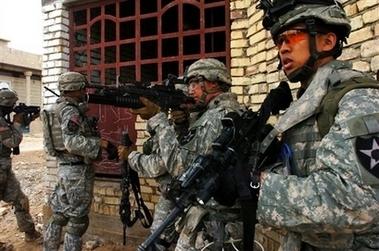US Army needs more contracting personnel
Updated: 2007-11-01 11:35
WASHINGTON -- The US Army, stung by a contracting fraud scandal that has generated more than 80 criminal investigations, needs 1,400 more personnel to deal with the demands of supplying troops in combat, said US officials familiar with a report by federal procurement experts.
|
|
The group's report, to be released Thursday, also calls for creating general officer positions within the Army's contracting work force -- a move to attract talented men and women to a field most would otherwise avoid because of dim prospects for career advancement.
Collectively, higher numbers, better quality and more clout within the Army's contracting ranks are expected to reduce opportunities for fraud, waste and abuse as tens of billions of dollars continue to be spent on the wars in Iraq and Afghanistan, US officials told The Associated Press. They described the report on condition of anonymity because it has not been released.
The report, "Urgent Reform Required: Army Expeditionary Contracting," proposes adding 400 military and 1,000 civilian personnel with contract-signing authority to an Army contracting work force that now has just over 10,000 people.
Additionally, the panel, chaired by former Pentagon acquisition chief Jacques Gansler, recommends giving the Defense Contract Management Agency several hundred more personnel to exercise greater oversight of contracts awarded overseas.
The US officials did not say what the costs of adding more people would be.
Established in August by Army Secretary Pete Geren, the Gansler panel was given a broad mandate to examine how the military branch acquires the gear and services it needs each year to operate.
Since 2001, provisional offices have spring up in Iraq, Afghanistan, Kuwait and Qatar and other locations to buy items such as bottled water, laundry services, barracks, food, transportation, and warehouse services.
But in certain places, such as Camp Arifjan in Kuwait, there were too few qualified people, too little oversight, high staff turnover, and poor record-keeping. In the midst of those shortcomings came a huge flow of dollars for the war, creating an environment ripe for misconduct and inefficiency.
A separate Army task force was assigned to examine a random sampling of the 6,000 contracts worth nearly $2.8 billion issued since 2003 by the Kuwait office in a search for rigged awards and sloppy work. That review is to be completed by the end of the year.
The Army Criminal Investigation Command already has 83 ongoing criminal investigations related to contract fraud in Iraq, Kuwait and Afghanistan. Nearly two dozen military and civilian Army personnel have been charged or indicted and more than $15 million in confirmed bribes has changed hands, according to the command.
Gansler is now director of the Center for Public Policy and Private Enterprise at the University of Maryland.
Other panel members included David Berteau, a former defense acquisition official, retired Army generals David Maddox and Leon Salomon, and retired Navy Rear Adm. David Oliver.
|
|
|
||
|
||
|
|
|
|
